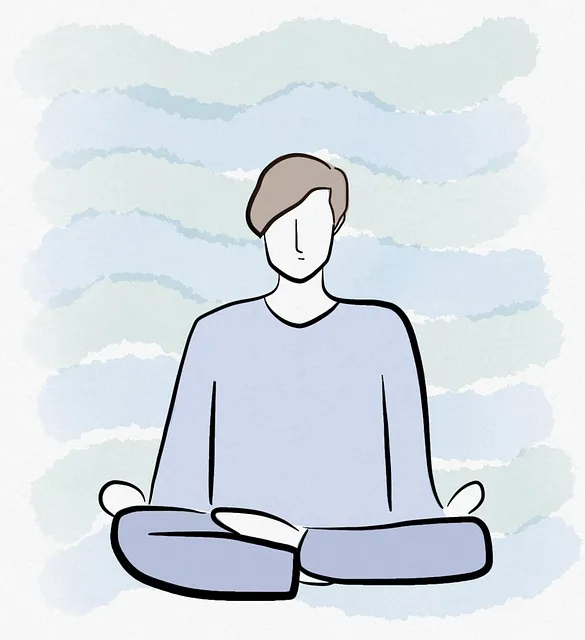Resilience is key to overcoming life's challenges, and the RFM (Recovery, Flexibility, Mastery) framework provides a powerful tool. This approach, offered by organizations like Lone Tree Kaiser Permanente in Norcal, focuses on recovery strategies, flexibility in handling uncertainties, and personal growth to make positive choices. They provide support services like a dedicated mental health hotline, stress reduction methods, and resilience exercises tailored to individual needs. The Lone Tree Kaiser Permanente model exemplifies successful mental health coaching programs that build resilience, offer personalized attention, and improve overall well-being among Norcal residents. Accessing these resources through the Lone Tree Kaiser Permanente mental health phone number is crucial for both individuals and healthcare providers looking to enhance their resilience and cope with life's pressures.
“Uncover the power of Resilience Building through RFM (Recovery, Flexibility, and Mastery) exercises. This comprehensive guide explores how such practices can enhance well-being, especially in navigating challenging times. We delve into the role of RFM in fostering resilience, offering a step-by-step implementation strategy.
Learn from the Lone Tree Kaiser Permanente Model, a Norcal success story, showcasing effective mental health support systems. Discover essential resources, including the dedicated Lone Tree Kaiser Permanente mental health phone number, to access critical assistance when needed.”
- Understanding RFM and Its Role in Resilience Building
- Implementing Resilience Exercises: A Step-by-Step Guide
- The Lone Tree Kaiser Permanente Model: A Norcal Success Story
- Accessing Mental Health Support: Phone Number and Resources
Understanding RFM and Its Role in Resilience Building

Resilience is a vital asset in navigating life’s challenges and setbacks. This is where the RFM (Recovery, Flexibility, and Mastery) framework steps in as a powerful tool. RFM is a comprehensive approach to mental health and well-being, designed to equip individuals with the skills to overcome adversity and foster lasting resilience. It recognizes that building resilience is an essential aspect of maintaining good mental health, especially for those seeking support through phone services like the Lone Tree Kaiser Permanente mental health hotline in Norcal.
The RFM model emphasizes three key components: recovery, flexibility, and mastery. Recovery focuses on developing strategies to cope with crises and traumatic events, ensuring individuals can seek help and support during difficult times. Flexibility involves cultivating adaptive skills to navigate life’s uncertainties and changes. Mastery encourages personal growth, empowering individuals to take control of their lives and make positive choices. By integrating these elements into mental health practices, such as the Crisis Intervention Guidance offered by Lone Tree Kaiser Permanente, individuals can enhance their overall resilience and well-being, utilizing Stress Reduction Methods like Compassion Cultivation Practices for a more balanced and fulfilling life.
Implementing Resilience Exercises: A Step-by-Step Guide

Implementing resilience exercises is a proactive approach to enhancing mental well-being and fostering a robust support system, especially in challenging environments. At Lone Tree Kaiser Permanente, recognizing the importance of mental health services in norcal, they offer resources tailored for personal growth and resilience. Here’s a simplified guide to help individuals and organizations introduce these practices:
1. Assess Needs: Begin by evaluating the unique challenges faced by your team or community. Consider factors like workload stress, interpersonal conflicts, or specific traumatic events. Understanding these triggers is crucial when tailoring resilience exercises (Risk Assessment for Mental Health Professionals).
2. Choose Activities: Select exercises that align with individual and group goals. This could include mindfulness practices, stress management workshops, or conflict resolution techniques. For instance, daily journaling can help individuals process emotions and track progress, while team-building activities promote communication and understanding.
3. Create a Plan: Develop a structured program with clear objectives and frequency. Start small, perhaps with weekly sessions, and gradually increase duration and intensity. Ensure the plan is flexible to accommodate diverse schedules and preferences.
4. Provide Training: Offer comprehensive training sessions led by qualified facilitators or mental health professionals. Educate participants on the benefits of resilience building and teach them the techniques effectively. This step is vital for maximizing engagement and ensuring exercises are performed correctly.
5. Implement and Monitor: Roll out the program and encourage active participation. Regularly monitor progress, collect feedback, and adjust as needed. Consider pairing one-on-one coaching with group sessions to cater to different learning styles (Stress Management Workshops Organization).
The Lone Tree Kaiser Permanente Model: A Norcal Success Story

The Lone Tree Kaiser Permanente Model stands as a shining example of successful mental health initiative in Norcal. This innovative program focuses on building resilience and inner strength through a unique approach, offering Anxiety Relief and Mental Wellness Coaching Programs that have shown remarkable effectiveness. By integrating these programs into their healthcare services, Kaiser Permanente has created a supportive environment that empowers individuals to navigate life’s challenges with greater ease.
The model prioritizes personalized attention, tailoring interventions to meet the specific needs of each individual. This tailored approach, combined with a strong community support system, fosters a sense of belonging and empowerment. As a result, participants report improved mental wellness and enhanced coping mechanisms, demonstrating the program’s profound impact on their overall well-being. For those seeking support, the Lone Tree Kaiser Permanente mental health phone number serves as a vital resource, offering guidance and access to these transformative programs.
Accessing Mental Health Support: Phone Number and Resources

Accessing mental health support is a crucial aspect of building resilience among healthcare providers, especially in regions like Norcal where Lone Tree Kaiser Permanente offers dedicated resources. The mental health phone number provided by Kaiser Permanente allows professionals to reach out for guidance and assistance when facing challenges related to stress, anxiety, or burnout. This initiative is a game-changer in the healthcare sector, as it recognizes the importance of prioritizing well-being.
For those dealing with high-pressure environments, these support services are invaluable. Burnout prevention strategies for healthcare providers often include stress management workshops organized by institutions like Kaiser Permanente. By participating in such programs, professionals can enhance their positive thinking and resilience, ensuring they remain equipped to handle the demands of their roles.
Resilience is a vital component of overall well-being, and exercises like RFM can significantly enhance an individual’s ability to navigate life’s challenges. As demonstrated by the success of the Lone Tree Kaiser Permanente model in Norcal, implementing structured resilience building programs can lead to profound positive changes. Remember that accessing mental health support is crucial, and organizations like Lone Tree offer valuable resources, such as their dedicated mental health phone number for those in need. By combining education, practical exercises, and community-based initiatives, we can foster more resilient individuals and communities.






